Biting Behavior Training
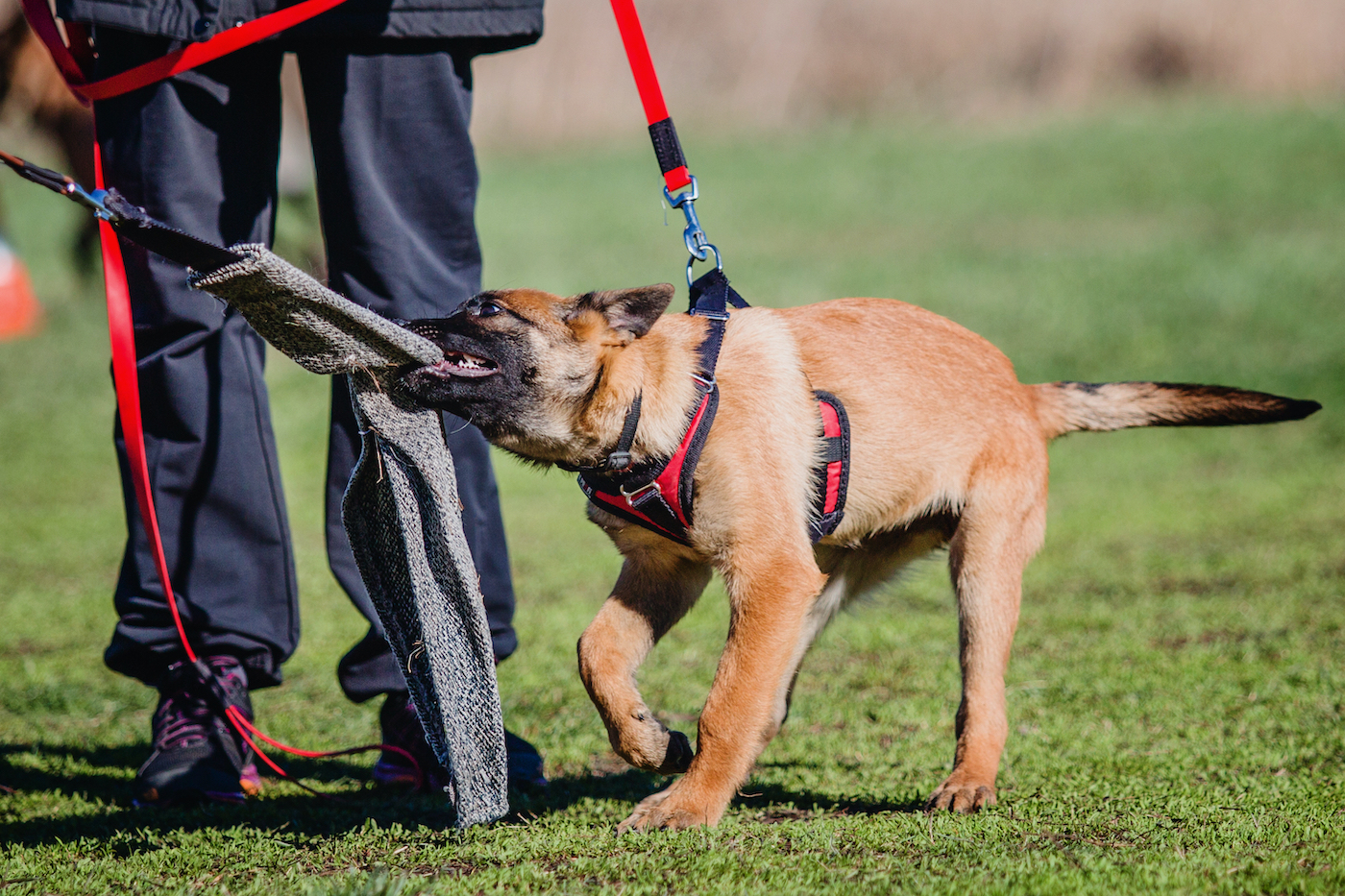
Our Biting Behavior Training Could Help:
- Reduce fear-based biting
- Address anxiety-related biting
- Manage teething behaviors
- Improve impulse control
- Build confidence in social settings
- Enhance trust with owner
- Prevent aggression toward other animals
- Ensure safe interactions with children and adults
Dog Biting Behavior
Training
Biting is a common behavior, especially in puppies, but when it continues or escalates, it can become a serious issue. Whether it stems from teething, fear, anxiety, or lack of proper boundaries, biting should be addressed early to ensure your dog grows into a calm, confident, and well-mannered companion.
At Lasting Dog Training, we create customized behavior modification plans that target the root causes of biting. From playful nips to more intense reactions, our experienced trainers focus on building trust, confidence, and clear communication between you and your dog.
Read More
With a balanced, compassionate approach, we help your dog feel safe and understood while teaching appropriate behavior through effective and lasting techniques.
Schedule your free consultation today and take the first step toward eliminating unwanted biting behaviors for good.
Unlock Exclusive Dog
Training Insights
Sign up with your email to receive exclusive tips, special offers, and expert dog training advice.
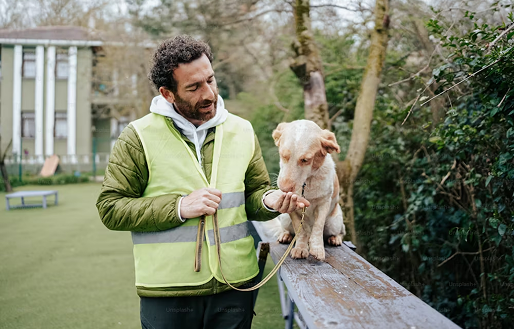
Get In Touch
Teach That Biting Hurts
Stop Biting
- Puppy biting or mouthing is completely natural, but it’s important to teach your pup that human skin is sensitive. One of the best ways to do this is by helping your puppy develop bite inhibition—the ability to control the strength of their bite.
Read More
- Puppies usually learn bite inhibition from playing with their littermates. If one puppy bites too hard, the other will yelp and stop playing. That natural reaction teaches puppies that rough play leads to the end of fun.
- You can use this same approach at home:
- Allow your puppy to gently mouth your hand during play.
- If they bite too hard, let out a quick "ouch!" or yelp and immediately let your hand go limp.
- Stop play for 15–20 seconds. This pause helps them connect biting with an end to playtime.
- If your puppy stops biting or licks you, praise them and resume play.
- You can also use short "time-outs" to reinforce the message if needed. The key is to make it clear that gentle play is good—and rough biting is not.
- At Lasting Dog Training, we emphasize positive reinforcement. With consistency, patience, and encouragement, your puppy will learn the difference between playful mouthing and unacceptable biting.
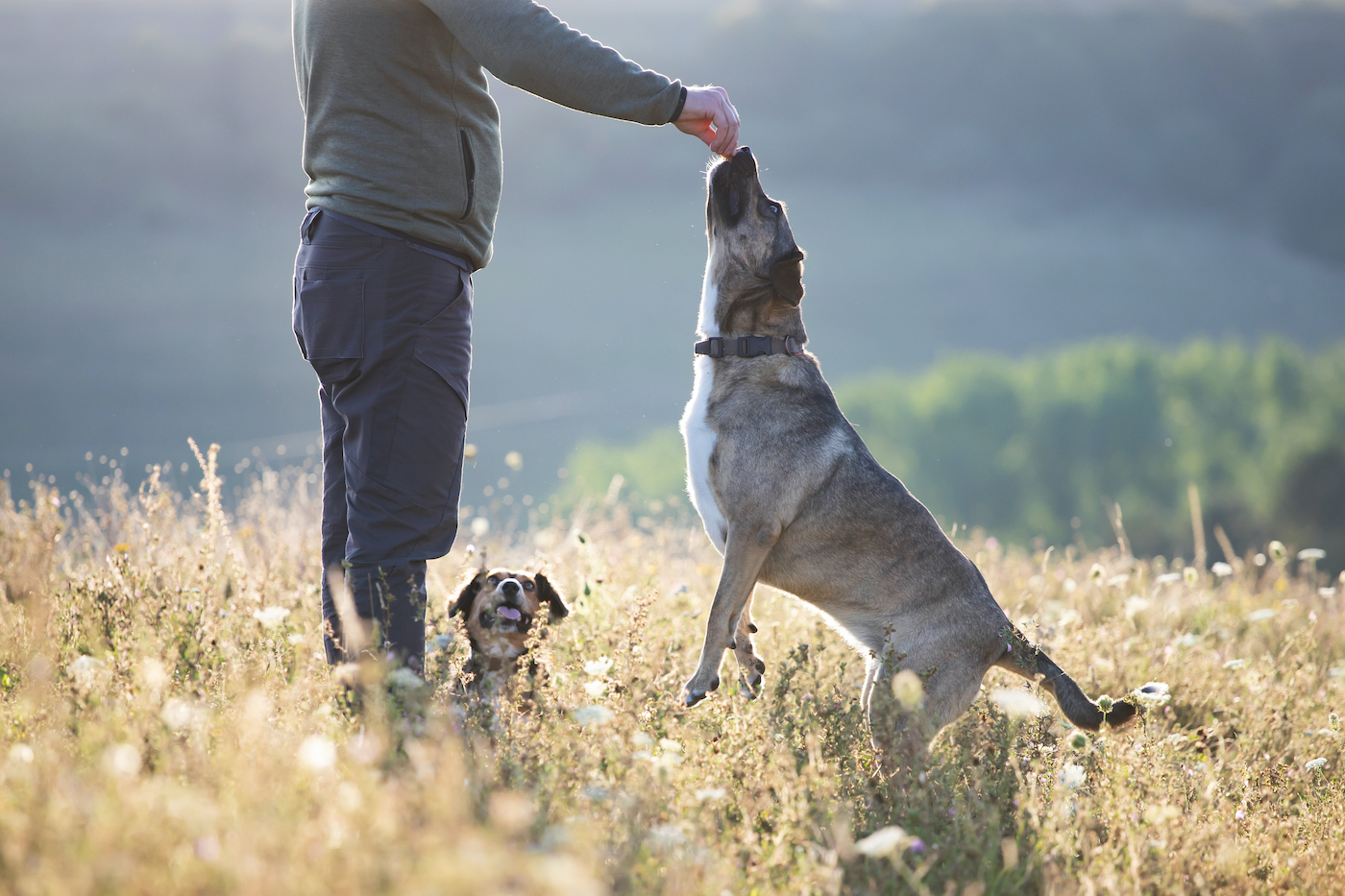
Hear From Our
Customers
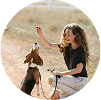
Sarah M., Los Angeles
Absolutely incredible training! My dog went from anxious and reactive to calm and obedient. The trainers are patient, knowledgeable, and truly care about your pet’s success
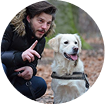
James R., Beverly Hills
I tried multiple trainers before, but nothing compares to this program. My dog walks perfectly on a leash now and responds to all commands. Life-changing!

Sarah M., Los Angeles
Best decision I made for my pup! The personalized approach made all the difference, and now my dog listens like a pro. Highly recommend
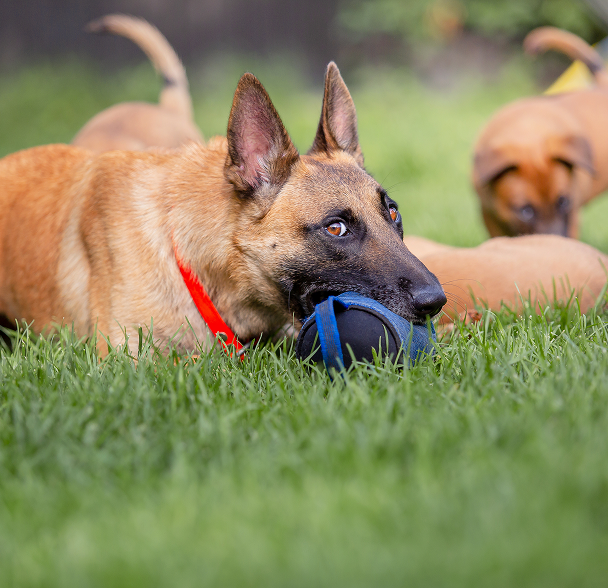
Transitioning From Gentle Mouthing to
No Biting
Once your puppy has learned to control the pressure of their bite, the next step in behavior modification is teaching them not to bite human skin at all. You can continue using the same strategy—yelping and stopping play—while gradually reducing the amount of acceptable mouthing until your pup understands that any biting ends the fun.
Read More
Additional Behavior Modification Techniques
- If your puppy tends to mouth your hands when being petted, distract them with treats. This helps them get comfortable with human touch without resorting to biting or mouthing.
- Always keep a favorite toy nearby. If your pup starts mouthing your hands, immediately redirect their attention to the toy. This teaches them what is okay to bite—and what isn’t.
- These small, consistent changes go a long way in shaping gentle, appropriate behavior. At Lasting Dog Training, we’ll help you reinforce these habits with techniques that are kind, effective, and rooted in trust.
Educate, Empower, Elevate, Elite
Victory Begins With Elite Education
What to Avoid
There are some behaviors we humans tend to engage in when we want to play with puppies that actually encourage them to bite. If you’re at a loss for how to stop a puppy from biting, make sure to avoid these habits:
Avoid Using Hands and Feet as Toys
Stay Calm if Your Puppy Bites
Never Use Physical Punishment
Hitting or slapping a puppy for biting is cruel and counterproductive. It can lead to fear or increased aggression in your dog.
At Dog Training Elite, we never use physical punishment to train puppies and dogs. We focus on rewarding desired behaviors. This method of training helps build a strong, loving bond between puppies and their owners.

